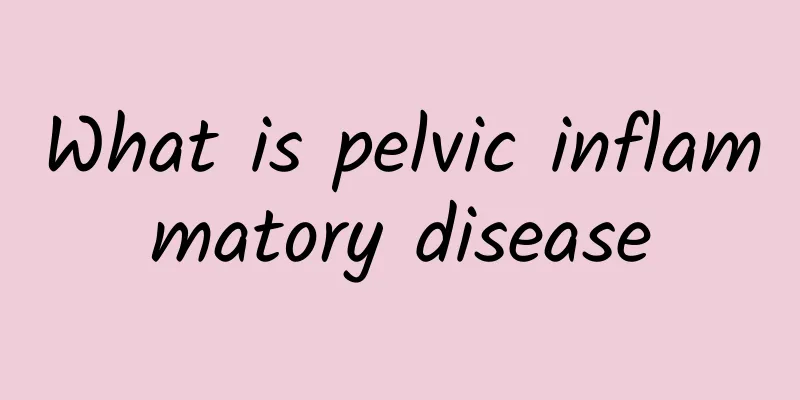What are the nursing routines for pelvic peritonitis?

|
Pelvic peritonitis is a common gynecological disease. Many female friends suffer from pelvic peritonitis but do not know what is going on. Pelvic peritonitis refers to the inflammation of the female pelvic reproductive organs, the connective tissue around the uterus and the pelvic peritoneum. How should pelvic peritonitis be cared for? 1. Completely cure acute pelvic peritonitis and prevent it from turning into a chronic disease, protracted healing, or recurring Acute pelvic peritonitis can become chronic and recur if it is not completely cured. Therefore, acute pelvic peritonitis should be treated actively and thoroughly. Patients should rest in bed or take a semi-recumbent position to facilitate the localization of inflammation and the discharge of secretions. Antibiotics should be used in sufficient quantities and for a sufficient course of treatment as prescribed by the doctor, and combined with Chinese medicine preparations for treatment. Patients with acute pelvic peritonitis should not be overworked, but should combine work and rest, and moderate sexual intercourse to avoid worsening symptoms. Treatment should not be based on temporary relief of symptoms as the standard of cure. The drug can only be stopped after the doctor's examination confirms that the disease is cured. Prevent the disease from recurring and disturbing your life. 2. Timely treatment of vaginitis to prevent ascending infection of pathogens Vulvovaginitis is a very common gynecological disease. If you experience changes in vulvovaginal itching, increased leucorrhea, yellow color, bean dregs, or watery, smelly, etc., you may have vulvovaginitis and must go to a regular hospital for treatment in time. Do not avoid medical treatment, take medicine on your own, and do not listen to small advertisements and seek medical advice; delaying diagnosis and treatment will cause the infection to spread upward and lead to pelvic peritonitis. 3. Pay attention to menstrual hygiene to prevent pelvic peritonitis During menstruation, the endometrium is exfoliated and bleeding occurs, and the cervix is open. If you do not pay attention to hygiene, it can lead to ascending infection of bacteria and cause pelvic peritonitis. Therefore, you should avoid sexual intercourse, swimming, and bathing during menstruation, and do not use unclean sanitary pads to prevent infection with pelvic peritonitis. |
<<: How to care for female pelvic peritonitis
>>: How to care for female pelvic peritonitis
Recommend
What causes endometrial thickening?
Endometrial thickening is a common gynecological ...
The symptoms of atrophic vulvar leukoplakia vary in different stages
Do you know the symptoms of atrophic vulvar leuko...
Explain what factors induce dysmenorrhea
The occurrence of dysmenorrhea has caused many wo...
What are the common causes of uterine fibroids?
"What are the causes of uterine fibroids?&qu...
Pregnancy after uterine fibroid surgery is more dangerous
Generally speaking, women with uterine fibroids c...
What causes endometriosis?
What causes endometriosis? You may not know much ...
What to eat during menstruation
During menstruation, eat iron-rich foods, fiber-r...
Detailed analysis of common symptoms of uterine fibroids
Uterine fibroids are benign tumors that occur in ...
What harm does dysmenorrhea have on women's health?
Dysmenorrhea is a phenomenon that many women have...
Can counting calories make you lose weight? Stop cheating your body, you can't fight your brain
You may have noticed that I have repeatedly empha...
Is your body straight? Stretching 5 parts for "zero position training" to shape a beautiful body
Every part of the body is atrophied, so each part...
Breakfast cereal + juice may cause blood sugar fluctuations and may make you fat
Cereals are a quick and convenient breakfast choi...
What causes severe cervical erosion and how to treat it
What causes severe cervical erosion and how to tr...
How to prevent menopausal functional uterine bleeding?
Traditional Chinese medicine believes that women&...
Symptoms can be used to diagnose ovarian cysts
How to diagnose ovarian cysts is a topic that man...









